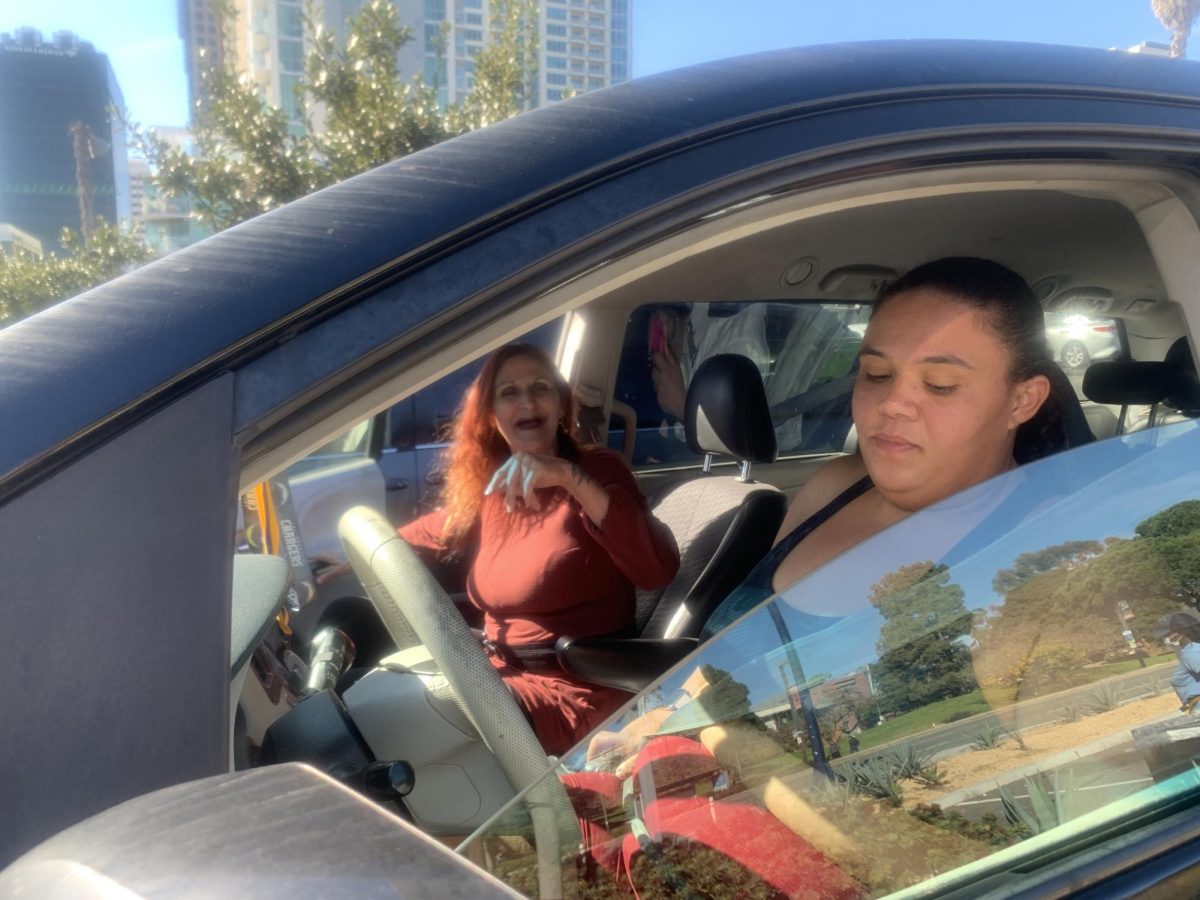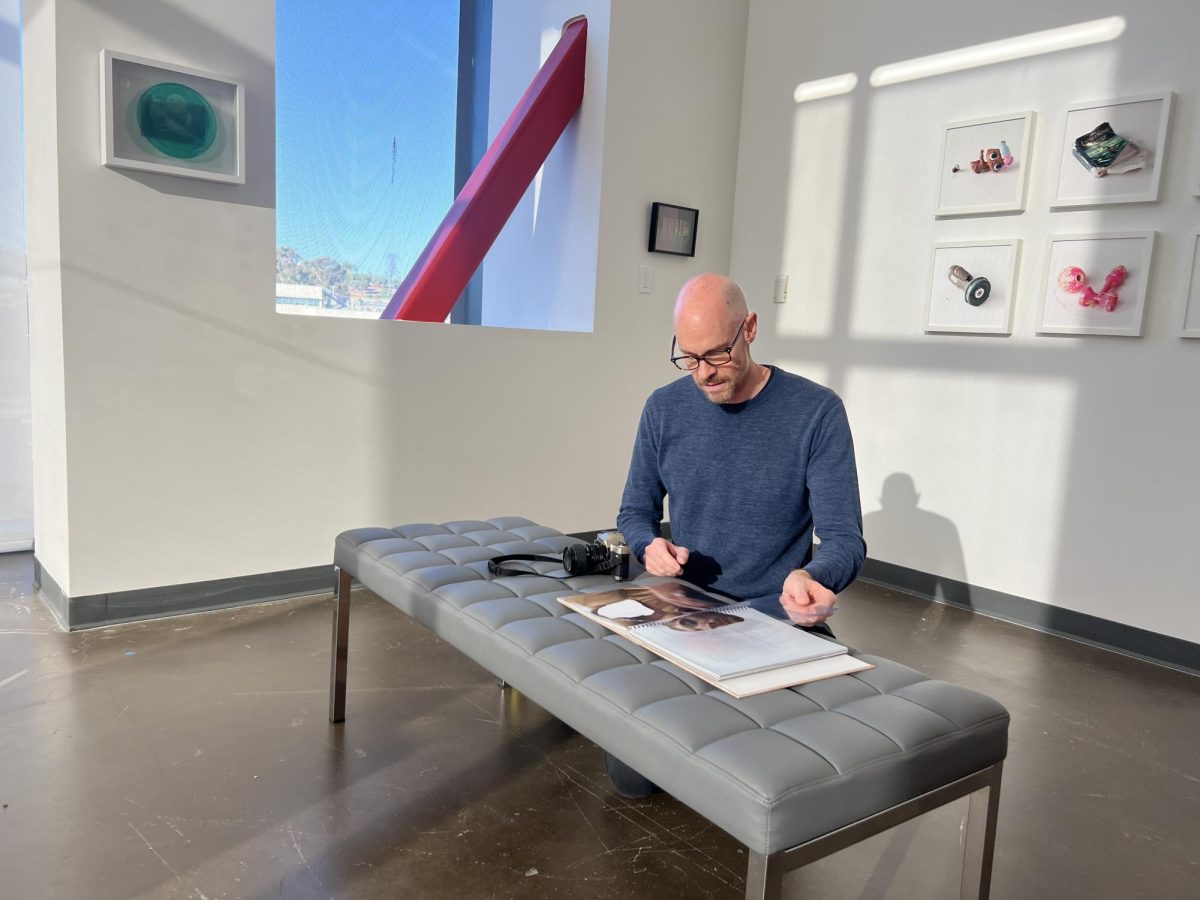Mayumi Kimura
City Times
Tats. Ink. Art. Whatever you call them, and whether you love them or hate them; tattoos are here. They have become an everyday existence; they are the norm.
During the punk movement in the late 1970s, tattoos were the mark of outlaws, bikers and wild women. “I felt like a minority. I was always being judged. I knew what it felt to be a woman of color, because I was a woman of color,” said San Diego City College student Themis McClung, who now has almost 55 percent of her body covered in tattoos.
“I got my first tattoo when I was 15. I had always wanted to be different. I wanted to be the nonconformist; and during that time having a tattoo was so taboo. But that first one really was the beginning to the end.”
Times have obviously changed, a survey in the Journal of the American Academy of Dermatology in 2004 found 24 percent of people between the ages of 18 and 50 have a tattoo. “It’s great; I never thought I would see the day when ink would become so mainstream. Everyone is so nice to me now. I feel like a celebrity,” said McClung.
However, just as the popularity in tattoos continues to increase, so does the regret. According to Elizabeth McBurney, professor for the American Academy of Dermatology, the laser tattoo removal business has rose from 1 percent to as much as 10 in the last decade.
“I have some ink that I wish I had thought through more carefully. I have a few tattoos that could be interpreted as racist. But that was another life. That’s why I came to school; it’s proved to me that everything I used to believe was wrong,” said McClung.
And for those who think that tattoo removal could be a quick fix to an “iffy” tattoo, think again. One laser session costs an average of $500, and it normally takes 10 sessions at two month intervals to remove one tattoo.
“My advice to new people is to not to get a tattoo on impulse. Mine are landmarks of my life. Tattoos should be well thought out. You should be committed to the art, and not the fashion of it,” said McClung.
If you aren’t sure whether you like your idea or how it may look on your body, have it done in henna ink. Henna, a plant, is used in traditional medicines and for ceremonial celebrations all over the world; and is temporary. Lasting up to three months, henna can be a perfect alternative or “practice” for a permanent tattoo.
Besides contemplating the right design, tattoo newbies and veterans alike should also be cautious of unsafe tattoo practice. Hepatitis C (HCV), a potentially fatal disease that attacks the liver, is spread by contact with the blood of an infected person; so risky tattoo behavior can substantially increase the chances of becoming infected.
Taking the extra precaution to research your tattoo artist and studio can greatly decrease the chance of transmission of infection. Look around; see whether the shop looks and feels clean and hygienic. And always be sure to ask whether the artist uses sterilized equipment. If in doubt, ask about their sterilization process; and if they allow it, watch them do it.
And needles are not the only means of blood cross-contamination; ink has also been known to be a means of transmission. Check to see whether the artist uses new ink and containers. Some shops use expensive ink and may not want to dispose of it after every patron.
The process of choosing the tattoo and artist may seem like a daunting task, but the reward of getting exactly what you envisioned can be life-changing. They can remind you of darker nights, brighter days, souls that have touched you, and winding paths ahead.
“My favorite tattoo is my Jesus Christ portrait. There was a period in my life that I felt I was waging a spiritual war within myself; it was possession, in the form of temptation. Now, it’s an everyday reminder of what’s really going on,” said McClung.
For any issues regarding tattoos, if things just don’t feel right; don’t do it. Go somewhere else or sleep on it. Do your homework. After all, tattoos are forever.







